Factors of 6 – Definition With Examples
Updated on December 11, 2024
In this article, we discuss factors, specifically, which numbers are factors of 6.
What Are Factors of 6?
The factors of 6 are numbers whose product result gives us 6.
The factors of 6 in pairs are 1 and 6, and 2 and 3 because when we multiply 1 by 6, we get 6. Likewise, when we multiply 2 by 3, we get 6.
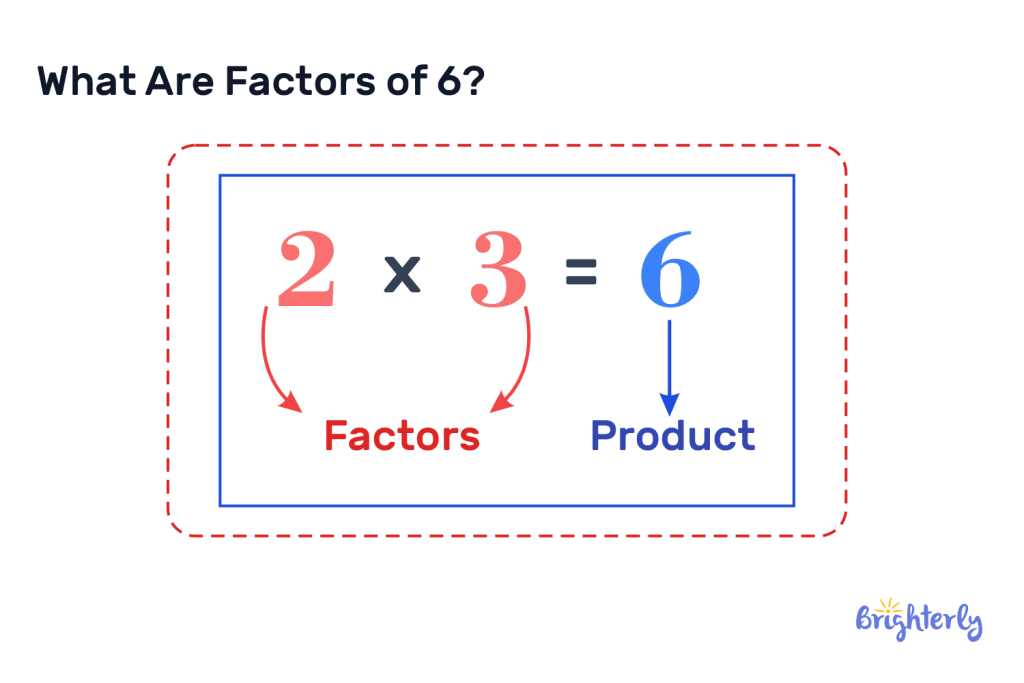
Therefore, the factors of 6 are 1, 2, 3, and 6 when arranged in order.
Definition of Factors
Factors are numbers whose product results are a given number.
Take, for example, the number 8. The factors are 1 and 8, and 2 and 4. This means when we multiply 1 by 8, we get 8, and when we multiply 2 by 4, we also get 8.
Therefore, factors of 8 are 1, 2, 4, and 8.
We can also deduce that the factors of a number are numbers that can divide the given number without any remainders. After all, 1,2,4, and 8 can be divided into 8 without any remainder.
Definition of Factors of 6
The factors of 6 are numbers that have 6 as their product result when multiplied. They are whole numbers that can be divided into 6 without any remainder.
Thus, all factors of 6 are 1, 2, 3, and 6.
If we multiply 1 by 6, the answer is 6. If we multiply 2 by 3, the answer is 6.
Properties of Factors of 6
Here are some unique properties that define the factors of six:
- 1 is a factor of 6
- The number 6 itself is a factor of six
- All the factors are less than or equal to the number 6
- The factors of 6 are whole numbers — not fractions or decimals.
Properties of Factors
The following are properties that are common to all factors of all numbers, and the 6 factors:
- 1 and the number itself are constant factors of a given number
- The factors can only be whole numbers
- Factors can not be greater than the given number. Instead, they are always less and equal to the number.
Method of Finding Factors of 6
To find the factors of 6 — and any other number really — we simply have to list the numbers that can divide it without any remainders:
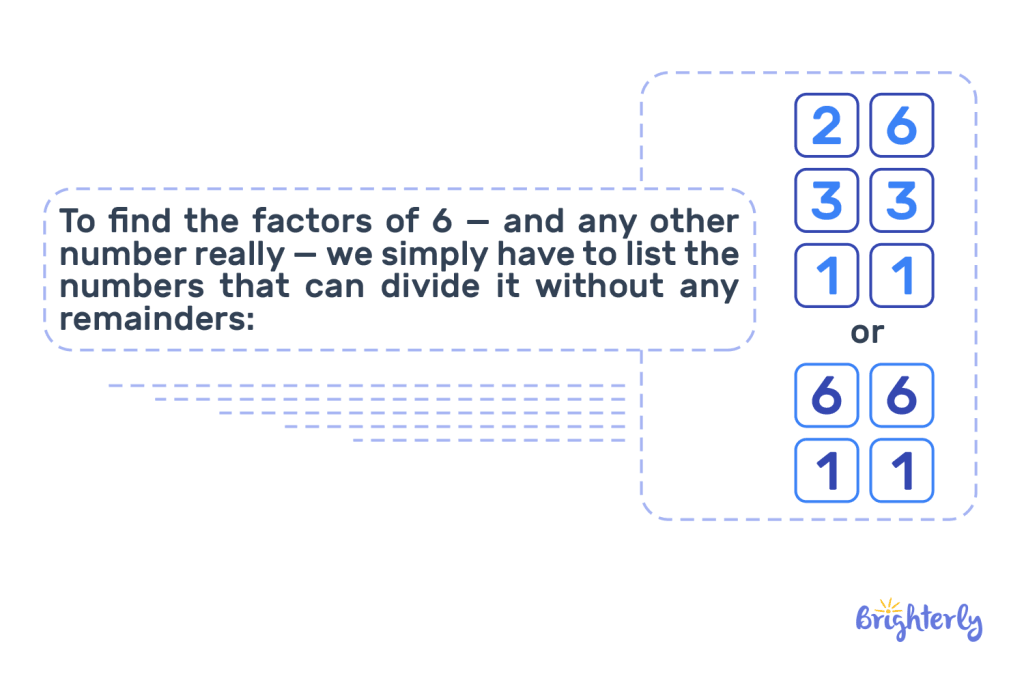
From the first instance, we can tell that 2 and 3 are factors of 6, and from the second instance, 6 and 1 are factors of 6.
This means we can list the factors of 6 as 2, 3, 1, and 6.
Difference Between Factors and Multiples
Factors are numbers that when multiplied, result in a different number. For example, if we list the factors of 6, we get 2, 3,1 and 6.
Multiples, however, are the results we get from multiplying a certain number by other whole numbers. For example, the multiples of 6 are 6, 12, 18, 24, 30, 36, 42, 48, 54, 60, etc.
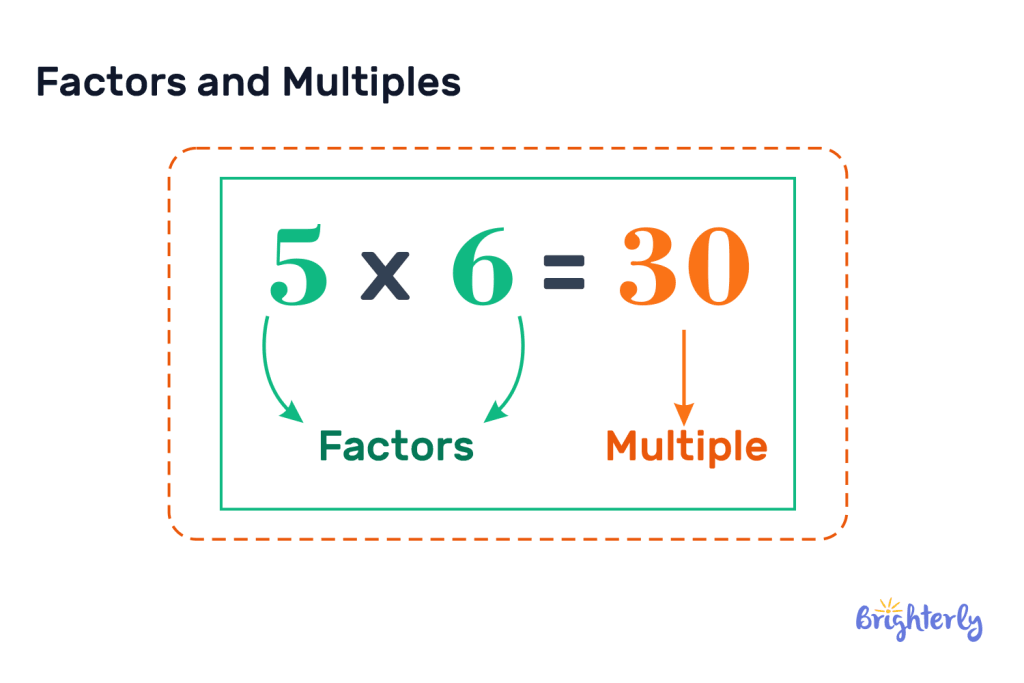
The multiples of a number can be endless but the factors are limited.
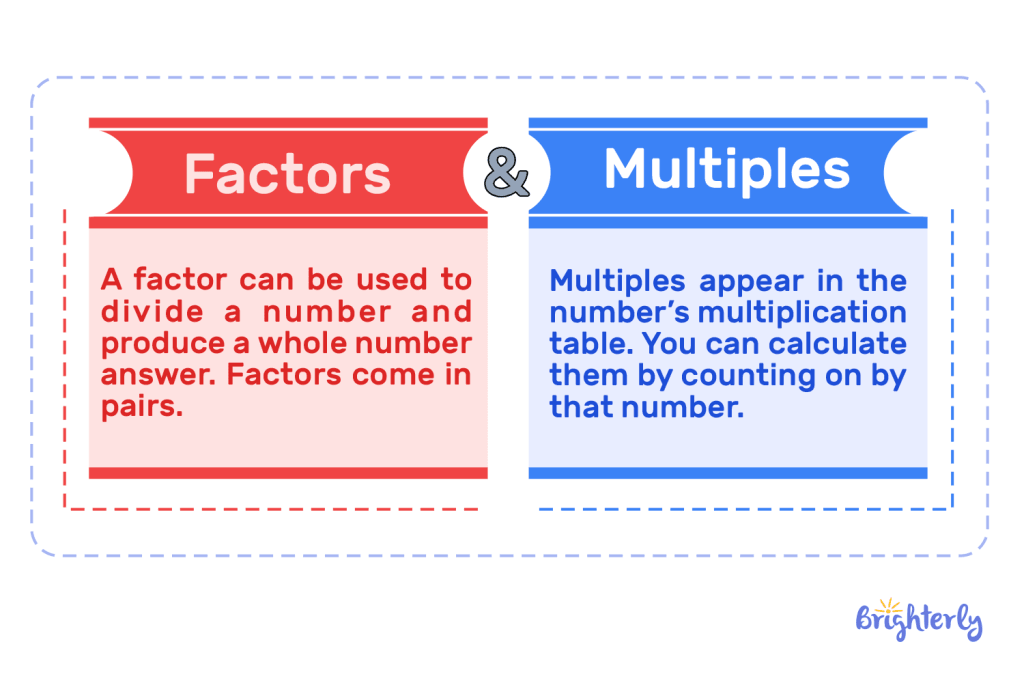
Prime Factorization Method
The prime factorization method involves dividing a number into the prime factors that make up the number. To do this, we divide the number by its smallest divisible factor, the next smallest, and so on until the quotient is 1. Here’s how we would write the prime factorization of 6.
Following the steps above, the prime factorization of 6 will thus be:
2 and 3 are the prime factors of 6.
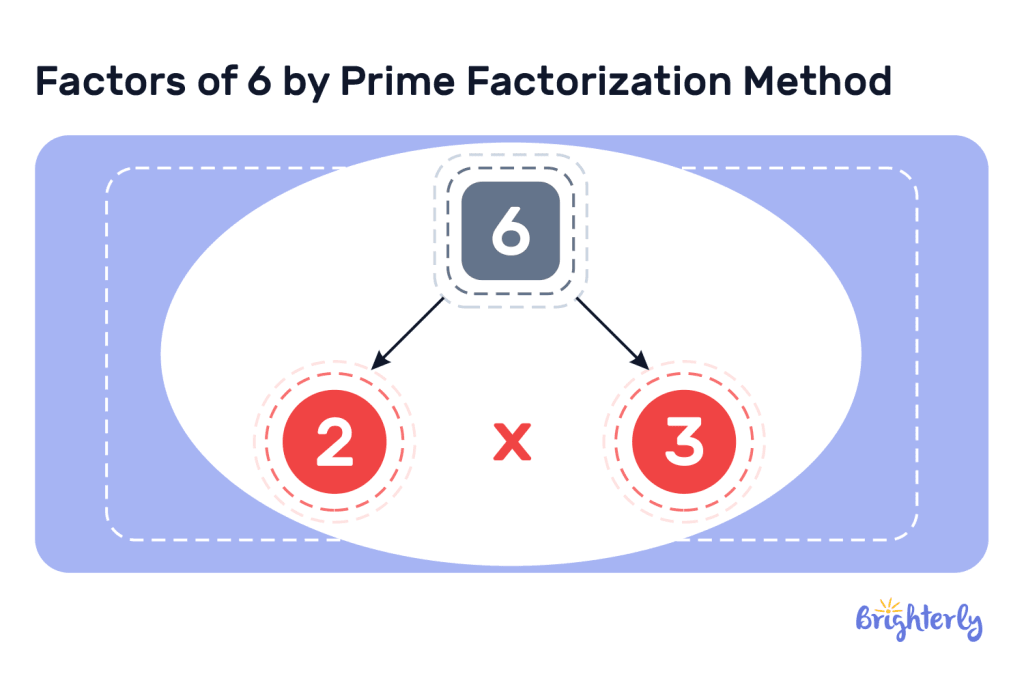
Factors of 6: Solved examples
Solved math problem 1
Answer the following true or false questions:
- The multiples of 6 are similar to the factors of 6
- 1 is a factor of 6 and a factor of every number
- The prime factors of 6 are 2 and 3
- 6 is the greatest common factor of 6 and 8
- With the 6 prime factorization equation, we get 2 and 3 as the prime factors of 6
Solution
|
Factors of 6 – Definition With Examples
Frequently Asked Questions on Factors of 6
What are the factors of 6?
The factors of 6 are 1, 2, 3, and 6.
How do you find the factors of a number?
We find the factors of a number by listing the numbers that can divide it without leaving a remainder. These numbers must also result in the number when multiplied.
What is the difference between factors and multiples?
Factors are numbers that can divide a number without a remainder. Multiples are the numbers that a certain number can divide without a remainder.






